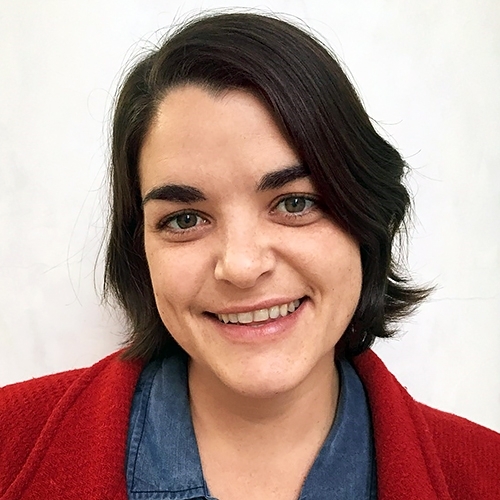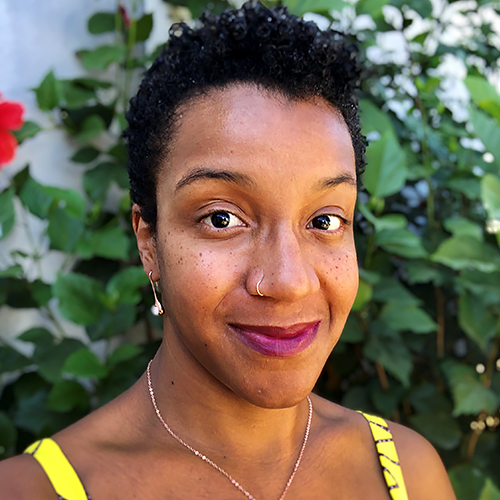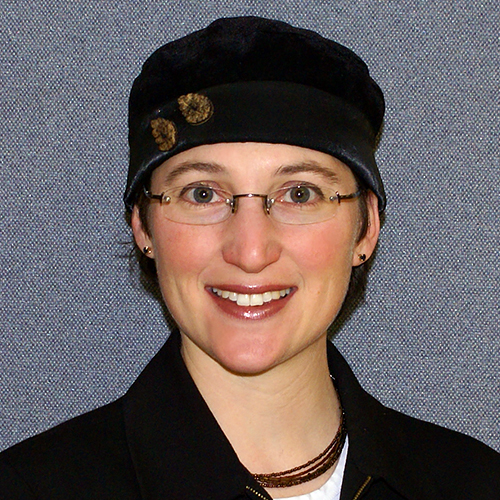 Breastfeeding Complications Online Course(s) & Continuing Education
Breastfeeding Complications Online Course(s) & Continuing Education
Access the latest clinical skills and research for Breastfeeding Complications for Lactation & Breastfeeding professional training. These Breastfeeding Complications online courses provide practice-changing skills and valuable perspectives from leading global experts. This Breastfeeding Complications education has been accredited for a variety of CEUs / CERPs and can be accessed on-demand, at your own pace.


Lyndsey is an experienced paediatric nurse, children’s public health nurse, International Board Certified Lactation Consultant, Holistic Sleep Coach, researcher and responsive parenting advocate. She has worked in hospitals, clinics, the community and within clients’ homes for 20 years, serving within the UK NHS, in private practice and voluntarily.
The co-founder and clinical director of the Holistic Sleep Coaching program, Lyndsey regularly teaches internationally, as well as providing mentorship for newer sleep coaches. She is passionate about responsive feeding, gentle parenting and promoting parental confidence and well-being.
With Professor Amy Brown, she is the co-founder of Thought Rebellion – an education and publishing company seeking to inspire, challenge and equip professionals and writers in the parenting, lactation and perinatal space with an evidence based revolution.
Lyndsey is currently a PhD researcher at Swansea University, exploring the needs and challenges of medically complex breastfed infants and children. In 2019 she set up the Breastfeeding the Brave project to raise awareness of the unique breastfeeding needs of chronically, critically, and terminally ill children in the paediatric setting. The mother of a childhood cancer survivor, she often talks about the impact of chronic serious illness on families, and seeks to support other families living through a serious childhood illness.
Lyndsey is a respected international speaker and teacher, and regularly speaks out against the dominant sleep training culture, as well as advocating for the rights of families to receive high-quality, compassionate and expert support. She is the author of Holistic Sleep Coaching (2018), Let’s talk about your new family’s sleep (2020), Still Awake (2021), Breastfeeding the Brave (2022) and co-author of The Writing Book (2022).
Topic: Breastfeeding Children with Cancer - [View Abstract]
Topic: More Support in a Coffee Shop Than in the Hospital: Experiences of Breastfeeding Children With Medical Complexity - [View Abstract]
Topic: Supporting Families With Sleep While Optimising Attachment and Responsive Feeding - [View Abstract]
Topic: You Can't Sleep With Your Foot On The Gas Pedal: How To Improve Sleep By Tapping Into Calm - [View Abstract]
Most children, happily, encounter no significant illness during childhood. Of those who do, some will be breastfed. Exclusive breastfeeding for 6 months, as well as continued breastfeeding alongside appropriate introduction of solid foods until the age of two years and beyond is recommended by the World Health Organisation. Breastfeeding is known to confer multiple well-documented protective properties, and the risks of not being breastfed are profound, even in well-developed countries.
Although breastfeeding reduces the overall risk of many serious childhood illnesses and malignancies, it is not a panacea. Many children who are breastfed optimally will still develop a serious health condition. This small group of children, and their families are an important population, with specific needs that are under-represented in policy, literature and professional training.
This presentation will identify specific childhood cancers, their prevalence and common treatments. It will also introduce some of the challenges experienced by parents breastfeeding their child through cancer, and some practical ways to support families facing this ordeal.
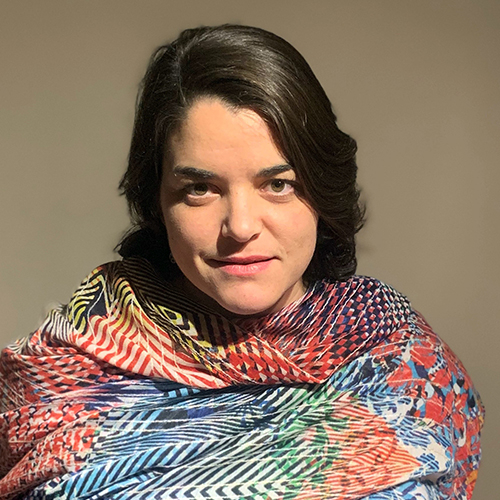
Breastfeeding The Baby With Congenital Heart Disease

Mariana Colmenares Castano was born in Mexico City, and from an early age she was fascinated by animals and nature.She studied medicine at the National University of Mexico (UNAM), and foundher passion as a pediatrician doing her residency at the National Pediatric Institute. When her first child was born she witnessed the lack of knowledge and commitment to breastfeeding within the medical profession, and so she decided to specialize in breastfeeding medicine. She certified as a Lactation Consultant (IBCLC) in 2011.Mariana is a member of the International Lactation Consultant Association, the Academy of Breastfeeding Medicine, and a proud founding member of the National Lactation Consultant Association of Mexico (ACCLAM), where she served on the Board of Directors as Education Coordinator (2014-2019). She is part of board director for the Academy of Breastfeeding Medicine for a 3 year period (2019-2022) and recently named as secretary for the Academy of Breastfeeding Medicine. Mariana is a member of the team for Breastfeeding Country Index BFCI, a project from Yale University and Universidad Iberoamericana. She is consultant for the National Health Institute in Mexico and has collaborated with UNICEF in breastfeeding projects and part of the steering committee for the WHO. She has spoken at national and international conferences, co-published numerous articles and co-authored a chapter for the National Academy of Medicine. At the moment she is a Clinical Fellow in Community Paediatrics in London.
Topic: Breastfeeding The Baby With Congenital Heart Disease - [View Abstract]
Topic: Breastfeeding with Insufficient Glandular Tissue - [View Abstract]
Topic: Clinical Assessment and Management of Jaundice in the Newborn - [View Abstract]
Topic: Oral Colostrum Care as an Immunological Intervention in the NICU - [View Abstract]
Breastfeeding can sometimes be challenging for some families even when baby and mother are healthy. The immunological and nutritional benefits provided by breast milk must be considered when feeding any baby; it is by far the best start for babies that have any other disease where they can tend to suffer from multiple respiratory infections and other medical complications putting babies’ health, wellbeing and lives at risk. When there is a baby with a congenital cardiac disease we can face a lack of evidence and homogenous practices regarding breastfeeding. Many mothers feel helpless and many surgeons and cardiologists are not convinced that breastfeeding is better and easier for the infant with congenital heart disease. They are uncomfortable with not knowing the volume baby consumes and are not used to observing oxygen saturation and heart rate when the baby is feeding at the breast. Current challenges in treating patients with chronic conditions include the prioritization of breastfeeding, identification of the most effective nutritional interventions, and the prevention or recovery of acquired growth failure.
Children with congenital heart disease who breastfeed have better growth, shorter hospital stays, and higher oxygen saturations than children with congenital heart disease who receive formula. It is necessary to support these families with evidenced based information to promote and support breastfeeding to all mothers and babies. Create programs to meet the needs of these vulnerable babies and train surgical and pediatric staff of the neonatal surgery unit so they can support and facilitate multidisciplinary work.


Mariana Colmenares Castano was born in Mexico City, and from an early age she was fascinated by animals and nature.She studied medicine at the National University of Mexico (UNAM), and foundher passion as a pediatrician doing her residency at the National Pediatric Institute. When her first child was born she witnessed the lack of knowledge and commitment to breastfeeding within the medical profession, and so she decided to specialize in breastfeeding medicine. She certified as a Lactation Consultant (IBCLC) in 2011.Mariana is a member of the International Lactation Consultant Association, the Academy of Breastfeeding Medicine, and a proud founding member of the National Lactation Consultant Association of Mexico (ACCLAM), where she served on the Board of Directors as Education Coordinator (2014-2019). She is part of board director for the Academy of Breastfeeding Medicine for a 3 year period (2019-2022) and recently named as secretary for the Academy of Breastfeeding Medicine. Mariana is a member of the team for Breastfeeding Country Index BFCI, a project from Yale University and Universidad Iberoamericana. She is consultant for the National Health Institute in Mexico and has collaborated with UNICEF in breastfeeding projects and part of the steering committee for the WHO. She has spoken at national and international conferences, co-published numerous articles and co-authored a chapter for the National Academy of Medicine. At the moment she is a Clinical Fellow in Community Paediatrics in London.
Topic: Breastfeeding The Baby With Congenital Heart Disease - [View Abstract]
Topic: Breastfeeding with Insufficient Glandular Tissue - [View Abstract]
Topic: Clinical Assessment and Management of Jaundice in the Newborn - [View Abstract]
Topic: Oral Colostrum Care as an Immunological Intervention in the NICU - [View Abstract]
Breastfeeding is the normative way to feed babies all over the world. We have access to a large amount of scientific evidence that supports it. Advocates of breastfeeding such as health care professionals that protect, promote and support the breast/chest feeding dyad can struggle sometimes with women or babies who cannot breastfeed as the World Health Organization suggests. Mothers with low milk supply are often supported by family, friends and health care with well meaning advice and remedies to help them do their best. Women who have insufficient glandular tissue (IGT) struggle with their milk supply, despite good breastfeeding management. It is common to see families with this issue during their second or third lactation failure without really understanding what might be going wrong. These babies can have dehydration in the neonatal period, hypernatremia or even death without anybody that could help with a correct diagnosis or help with achievable goals that can benefit both mother and baby. It is of great importance to help with accurate diagnosis that can also benefit psychologically and can help parents choose to continue breastfeeding with breast/ chest supplementation.

View Details / Enroll
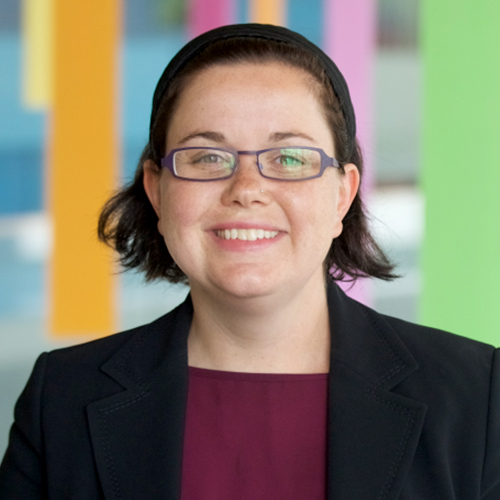
Building Bridges: Early IBCLC Recognition and Triage of Common and Life-Threatening Newborn and Maternal Pathology

Anya Kleinman is a general pediatrician who works at Akron Children's Hospital in Akron, Ohio caring for the range of patients from birth to late adolescence. She uses her IBCLC expertise to counsel new parents and promote breastfeeding in the ER.
IBCLCs, often with limited education in newborn medicine and obstetrics, care for the infant-parent dyad within the context of a complex healthcare system staffed by providers with variant training in breastfeeding medicine. This is an interaction filled with knowledge gaps and fraught with the possibility for misunderstanding and dangerously missed diagnoses. I plan to combine my training in general pediatrics and my clinical experience as a pediatric ER physician with my IBCLC training. I will teach conference participants about medical emergencies when caring for the breastfeeding newborn and the post-partum parent so that they can recognize clinical scenarios presenting to their care that require immediate medical assessment. The presentation will focus on high-yield topics in newborn medicine and postpartum obstetrics to deepen the IBCLCs recognition and ensure appropriate ongoing care for common and life-threatening complaints. It will include a discussion of neonatal jaundice, neonatal fever, severe weight loss, pyloric stenosis, congenital birth defects and genetic disorders; the lecture will also address postpartum depression, post-operative infections, and postpartum preeclampsia. Armed with this understanding of clinical red flags, IBCLCs will be empowered to better care for their breastfeeding patients, while also understanding when immediate medical assessment is imperative.
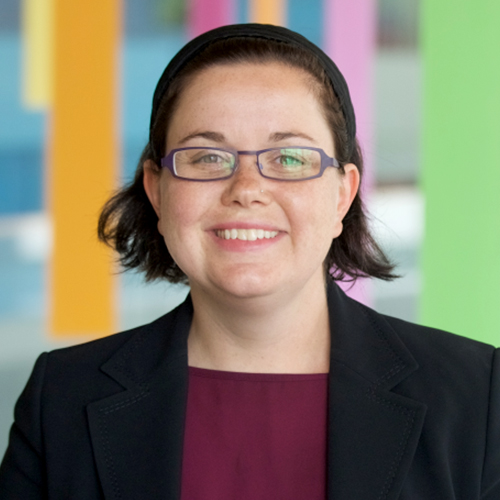
View Details / Enroll
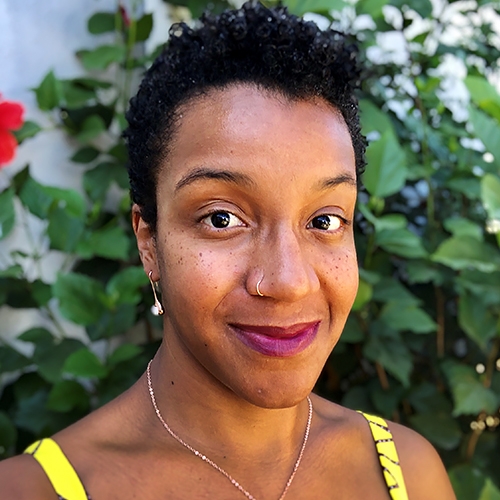

Leah De Shay studied Psychology and Speech Language Pathology in undergrad before embarking on a series of international research projects with that launched her journey to CLEC and IBCLC completion. Has worked both in patient and out patient, runs community support groups and is the current president of LACTWORLD and chief operating officer of LacBoMa. She is saving to do her bridge doctoral studies in physiology of lactation.
Breastfeeding parents who are navigating autoimmune disorders of inflammation such as lupus, and rheumatoid arthritis face unique challenges. This presentation will look at the lived experiences, limited research, and express challenges of these parents including the most common and debilitating symptoms for the prenatal and post partum periods, and ways these conditions can affect mammary gland development or interfere with lactogenesis stages. Also covered will be how managing the symptoms of these disorders affects the stress of recovery and breastfeeding or pumping goals, what methods of support can be offered and areas for future clinical improvement and advocacy.
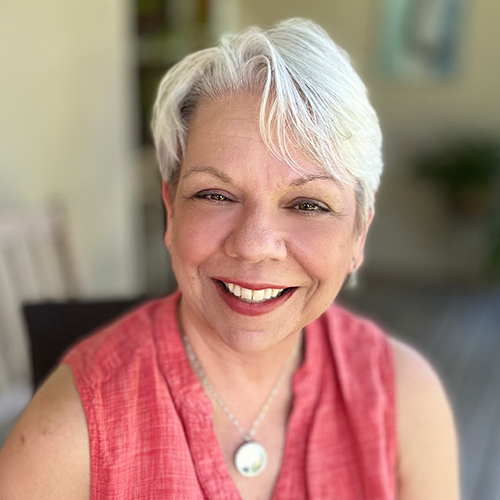

Mary Ryngaert is a Pediatric Nurse Practitioner since 1987 and an International Board-Certified Lactation Consultant since 2000. She received her MSN in the Primary Care of Children at Catholic University in Washington, DC. In her clinic at the University of Florida, she sees families for breastfeeding issues for the duration of the breastfeeding journey and provides education for pediatric residents. She is active in the local breastfeeding coalition and serves as a consultant/coordinator for the hospital Baby Friendly program. She has a special interest in supporting the development of peer counselors, especially women of color, to provide breastfeeding support within the community. She served as the Chair for the National Association of Pediatric Nurse Practitioners (NAPNAP) Breastfeeding Special Interest Group for six years and is a delegate to the US Breastfeeding Committee for NAPNAP . She was a co-author for the 2018 update to the NAPNAP Position Statement on Breastfeeding.

View Details / Enroll
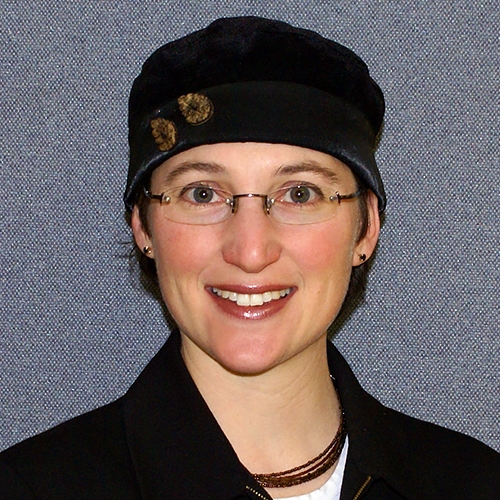
Delayed Lactogenesis II In Women With Gestational Diabetes Mellitus

Dr. Ilana Azulay Chertok is a Professor and Associate Director of Nursing Research and Scholarship at the Ohio University, College of Health Sciences and Professions, School of Nursing. She earned her bachelor’s in international relations and nursing, master’s in nursing, doctorate (PhD) in epidemiology, and post-doctorate in nursing research. The primary focus of her research is national and global maternal-infant health, specifically lactation and breastfeeding research. She has published and presented her work in national and international journals, conferences, and other professional forums. Dr. Chertok has served as a mentor to undergraduate students, graduate students, and health professionals of various disciplines including nursing, medicine, and public health. Currently, she is the lead PI on a study examining the differences in breastfeeding and breast milk between women with and without gestational diabetes mellitus.
Background: Higher intensity and longer duration of breastfeeding is associated with protection against type 2 diabetes development. While exclusive breastfeeding is optimal, women with gestational diabetes mellitus (GDM) have lower exclusive breastfeeding rates than non-diabetic women. While women with GDM have expressed that they feel that their milk “comes in” late, there is limited biochemical validation of their perception and a lack of information regarding the difference in metabolite composition of colostrum which may influence the transition to lactogenesis II. Methods: Researchers conducted a prospective case-control pilot study involving the comparison of metabolite concentrations and maternal perception of milk “coming in” between postpartum women with GDM and without GDM. Results: There were lower concentrations of lactose and citrate, metabolites that indicate transition to lactogenesis II, in colostrum samples of women with GDM compared to non-diabetic women. Furthermore, a higher proportion of women with GDM reported a perceived delay in their milk “coming in.” Conclusions: Lower levels of lactose and citrate in the colostrum samples of women with GDM compared to those without GDM indicate delayed lactogenesis II with GDM which may suggest a biological mechanism associated with lower breastfeeding rates among women with GDM. Additionally, maternal perception of delayed lactogenesis II among women with GDM appears to be validated by biomarkers. The implications for practice relate to lactation support in the early postpartum period among women with GDM.
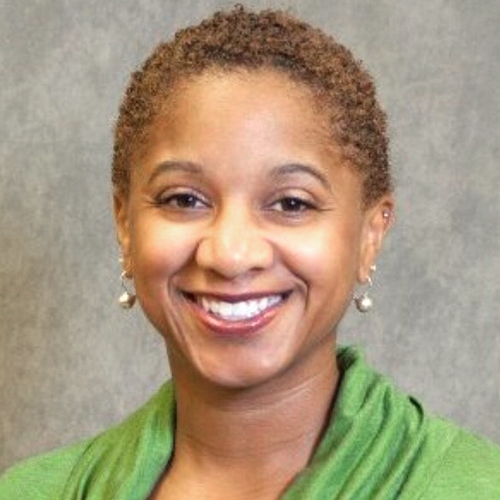
Disorganized Infant Feeding: Beyond Suck, Swallow, Breathe

Jada Wright Nichols is an Atlanta-based women’s wellness consultant. She graduated from Tennessee State University, with a bachelor’s degree in speech pathology and audiology. She has a master’s degree in occupational therapy and has worked in a variety of rehabilitation settings, across the life-span.
Additionally, she is a massage therapist, lymphedema therapist, holistic nutritionist, birth and postpartum doula, yoga instructor, and international board-certified lactation consultant (IBCLC). She is a lactation consultant at Children’s Healthcare of Atlanta, and the owner of Blossom Health and Maternal Wellness, and Bloom Early Intervention, which provide in-home and virtual services for new and expectant families, as they navigate various aspects of parenting, access, and equity.
Suck swallow breathe coordination is one of the earliest and most meaningful motor milestones of a developing infant. That level of coordination varies between breastfeeding and bottle feeding. Too frequently, if there are any challenges while feeding at the breast, bottle feeding is recommended, often without a complete assessment around the challenge itself. Infant feeding may be disorganized for one of a variety of contributing factors. It is important to be able to identify one or more of those factors, and to facilitate a solution, which may include seeking the insight and intervention of another allied health professional. Honing observation skills, incorporating diagnostic tools, and coordinating feeding assessments and protocols with specialists assist in preserving the initial breastfeeding relationship, with equity.

Feeding Difficulties: A Look at High Risk Populations

Amber Valentine is a Speech-Language Pathologist who graduated from the University of Kentucky with her MS in Communication Disorders. She is a Board Certified Specialist in Swallowing and Swallowing Disorders and an International Board Certified Lactation Consultant. She worked for Baptist Health Systems, Inc for 8 years before moving to Florida where she worked for Wolfsons Children’s Hospital and Mayo Florida. She is now back in Kentucky working for Baptist Health Lexington. She has experience in adults and pediatrics with feeding and swallowing difficulties including: bedside swallow evaluations, Modified Barium Swallow studies, FEES, and pediatric feeding evaluations including NICU. She has provided guest lectures for the University of Kentucky and the University of Louisville on feeding and swallowing topics. She has presented at the hospital level, local, state, national, and international levels on pediatric feeding/swallowing and breastfeeding.
Lillian Scott is a speech-language pathologist and certified lactation counselor employed by Baptist Health Lexington in Lexington, Kentucky. She received master’s degree in Speech-Language Pathology from Gallaudet University. She received dual bachelor degrees in Communication Sciences and Disorders and Special Education from the University of Kentucky. She has worked with pediatrics and adults in the areas of speech, language, and swallowing. She has NICU, Mother/baby, and outpatient clinical experience working with feeding dyads of breast and bottle feeding infants. In the area of adults and pediatrics, she has experience with clinical swallowing evaluations and Modified Barium Swallow Studies. She has experience with adult Fiberoptic Endoscopic Evaluations of swallowing (FEES). Her interest is in successful feeding by mouth for infants with complex medical histories and promoting breastfeeding in cultures that are not likely to receive the supports for feeding difficulties due to knowledge, costs, and/or access.
Feeding is the most complex task of infancy, even in term babies with no complications. There are many diagnoses, conditions, syndromes, and co-morbidities that can impact feeding in neonates and infants. This talk will briefly highlight many of those, but we will focus on three specific populations of interest –Neonatal Abstinence Syndrome, Infants of Diabetic Mothers, and Downs Syndrome. We will discuss the specific implications these conditions can have on feeding, why these infants may have difficulty, and the classic symptoms one could expect to see. The differences between delayed and disordered feeding will also be addressed. Strategies and adaptions for breast feeding will be discussed. Positioning and external strategies will be explained. Case studies will be shared at the end of the presentation.

View Details / Enroll

Form and Function: Looking for Clues in Babies with Structural Issues Affecting Breastfeeding
 Aruna Savur,
MBBS, DNB (Pediatrics), Advanced training in Neonatal Intensive Care, IBCLC, Certified Infant Massage Instructor
Aruna Savur,
MBBS, DNB (Pediatrics), Advanced training in Neonatal Intensive Care, IBCLC, Certified Infant Massage Instructor

Dr Aruna Savur lives and works in Bengaluru, India as a pediatrician, IBCLC and certified infant massage instructor in private practice. She graduated MBBS from Mysore Medical College and Research Institute in 1990. She certified the Diplomate National Board exam in Pediatrics in 1997 from Father Muller's Medical College, Mangalore. She subsequently worked in private pediatric practice. In 2015 she trained in Neonatal Intensive Care from Manipal Hospital, Bengaluru. In 2018 she qualified as an IBCLC. In 2020 she certified from IAIM ( International Association of Infant Massage) as a infant massage instructor. She worked in various hospitals in Bengaluru as a pediatrician and IBCLC. She has been working on educating herself by delving deeper into various lactation education certifications. She is currently training in craniosacral therapy for babies.
 Aruna Savur,
MBBS, DNB (Pediatrics), Advanced training in Neonatal Intensive Care, IBCLC, Certified Infant Massage Instructor
Aruna Savur,
MBBS, DNB (Pediatrics), Advanced training in Neonatal Intensive Care, IBCLC, Certified Infant Massage Instructor
Breastfeeding is orchestrated by the newborn’s brain, eliciting the parent’s responses via their nervous system and hormones. The newborn uses 6 cranial nerves, 22 bones, 34 articulations, and 60+ muscles - all tied together by fascia, and multiple physiological processes to accomplish a smooth suck, swallow and breathe cycle. Any abnormal function of the nervous, muscular or skeletal system can disrupt the biomechanics of breastfeeding, which the baby would circumvent with compensations. If this is detected, corrected and supported the innate breastfeeding bond can be reestablished. Detection includes looking for clues in the history (pregnancy, birth, breastfeeding), in the physical examination of the baby, oral exam, and the breastfeeding process. This presentation helps the learner to identify the structures involved, what could have caused dysfunction, the kind of dysfunction that ensues, and the breastfeeding compensations being used by the baby. These can then be effectively addressed by the IBCLC along with a collaborative care team to ensure a competent breastfeeding journey.
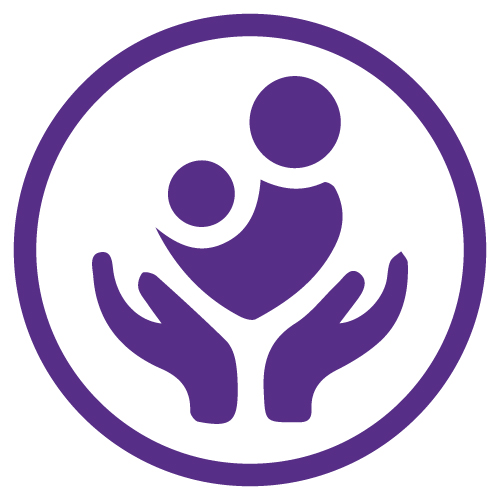
View Details / Enroll




